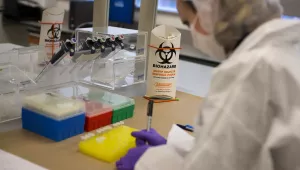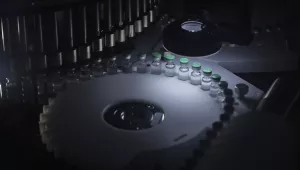David A. Relman, M.D., is the Thomas C. and Joan M. Merigan Professor in Medicine, and Microbiology & Immunology at Stanford University, and Chief of Infectious Diseases at the Veterans Affairs Palo Alto Health Care System. He is also Senior Fellow at the Freeman Spogli Institute for International Studies (FSI), and served as science Co-Director at the Center for International Security and Cooperation from 2013-2017, at Stanford. He is currently director of a new Biosecurity Initiative at FSI.
Relman was an early pioneer in the modern study of the human indigenous microbiota (microbiome). Most recently, his work has focused on human microbial community assembly, and community stability and resilience. Previous work included the identification of several historically important and novel microbial disease agents. One of his papers was selected as “one of the 50 most important publications of the past century” by the American Society for Microbiology.
Among policy-relevant activities, Relman served as vice-chair of the National Research Council Committee that reviewed the science performed for the FBI 2001 Anthrax Letters investigation, chair of the Forum on Microbial Threats at the National Academy of Medicine (NAM) from 2007-2017, is currently a member of the Intelligence Community Studies Board at the National Academies of Science (NAS). He was a founding member of the National Science Advisory Board on Biosecurity, a member of the Working Group on Biodefense for the President’s Council of Advisors on Science and Technology (The White House), and served as President of the Infectious Diseases Society of America. He was awarded NIH Pioneer and Transformative Research Awards, and was elected to the National Academy of Medicine in 2011.



